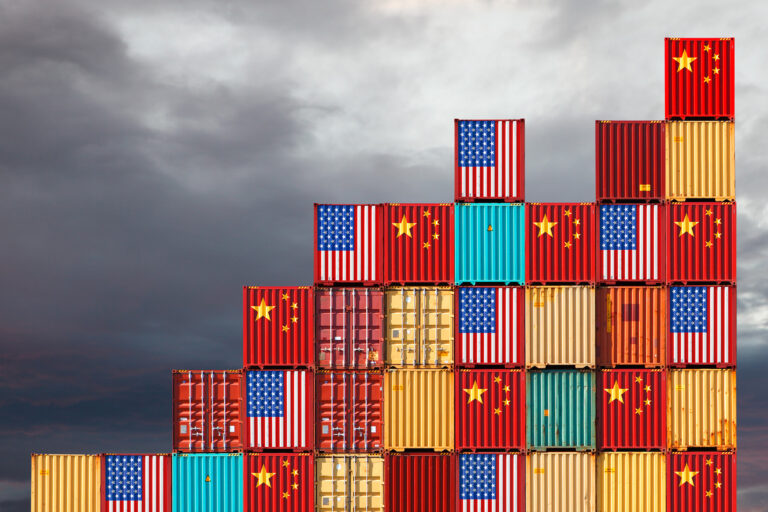Biden’s withdrawal brings uncertainty to wars, trade disputes, and other diplomatic challenges.
On the afternoon of the 21st Eastern Time, U.S. President Biden announced his withdrawal from the 2024 presidential race and expressed his support for nominating Vice President Harris as the Democratic presidential candidate.

As Western leaders grapple with the wars in Ukraine and Gaza, a more assertive China in Asia, and the rise of the far-right in Europe, current U.S. President Joe Biden’s withdrawal from the November presidential election introduces greater uncertainty to the global situation.
Throughout Biden’s 50-year political career, he has built extensive personal relationships with numerous foreign leaders, a distinction none of the potential successors on the current Democratic candidate list can match. Following his announcement to withdraw, messages of support and gratitude for his years of contribution have poured in from all directions.
The wide range of foreign policy challenges the next U.S. president will face underscores the significant impact Washington’s actions have on the entire world. Here are some of those challenges:
Israel
Israel is facing increasing global isolation due to its military actions against Hamas. With U.S. Vice President Kamala Harris seen as Biden’s potential successor, Israel is eager to understand how her candidacy might affect them.
An article in Israel’s left-wing newspaper, Haaretz, examined Harris’s record of supporting Israel. The article noted that she has been Biden’s “bad cop,” strongly condemning Israel’s attacks on Gaza. In recent months, she has called for ceasefires, condemned Israel’s invasion of Rafah, and expressed shock at the civilian death toll in Gaza, even more so than Biden.
Former Israeli Consul General in New York, Alon Pinkas, stated, “With Biden’s withdrawal, Israel has lost the last Zionist-supporting president. The new Democratic candidate will upend this situation.”
Ukraine
Any Democratic candidate is likely to continue Biden’s firm military support for Ukraine. However, the slow pace of U.S. aid and restrictions on the use of Western weapons have increased dissatisfaction with the Biden administration in Ukraine and Europe.
Sudha David-Wilp, director of the Berlin office of the German Marshall Fund, said, “Most Europeans realize that Ukraine will increasingly become their burden,” adding, “Everyone is preparing for all possible outcomes.”
Ukrainian President Volodymyr Zelenskyy said on social media platform X that he respects Biden’s “difficult but strong decision” to withdraw and thanked him for “helping to prevent Putin from taking over our country.”
U.S. Republican presidential candidate Donald Trump has promised to end Russia’s war in Ukraine within a day if elected, raising concerns among Ukrainians as it implies Russia might be allowed to retain occupied territories. Additionally, Trump’s running mate, Ohio Senator JD Vance, is one of the strongest opponents of U.S. aid to Ukraine in Congress, further increasing the risks faced by Kyiv.
China
In recent months, both Biden and Trump have tried to show voters who can better handle Beijing’s growing military power and aggressive stance, as well as protect American businesses and workers from cheap Chinese imports. Biden has raised tariffs on Chinese electric vehicles, while Trump has promised a 60% tariff on all Chinese products.
Trump’s “America First” principle has heightened tensions with Beijing, and disputes over trade, technology, and security with this geopolitical rival and economic giant have persisted into Biden’s term.
China’s official response to the U.S. presidential election has been cautious. The official Xinhua News Agency treated Biden’s withdrawal as a relatively minor event. Former editor-in-chief of the state-run Global Times, Hu Xijin, downplayed the impact of Biden’s withdrawal. He wrote on X, “In fact, no matter who becomes the Democratic presidential candidate, it may be the same. There are two kinds of voters, Trump lovers and Trump haters.”
Iran
With Iran’s proxies increasingly involved in the Israel-Hamas war in the Middle East, the U.S. is facing a chaotic region.
Last week, Iran-backed Yemeni Houthi forces struck Tel Aviv for the first time, leading Israel to retaliate against war-torn Yemen. Rising tensions and cross-border attacks between Iran-backed Hezbollah in Lebanon and Israeli forces have raised fears of a full-scale regional conflict.
Hamas, also supported by Iran, continues to fight Israel despite nine months of war, which has resulted in 38,000 Palestinian deaths and displaced more than 80% of Gaza’s residents.
The U.S. and its allies accuse Iran of expanding its nuclear program and enriching uranium to 60%, close to weapons-grade levels. In 2018, then-President Trump withdrew from the Iran nuclear deal, and the Biden administration has maintained harsh economic sanctions on Iran.
Europe and NATO
Many Europeans were pleased with Trump’s departure as he had disparaged the EU and weakened NATO for years. Trump’s apparent indifference toward European allies during last month’s presidential debate did not ease these concerns.
Conversely, Biden has supported close relations between the U.S. and EU leaders.
Following Biden’s decision to withdraw, Polish Prime Minister Donald Tusk called his choice “possibly the toughest decision of your life.” Newly appointed British Prime Minister Keir Starmer said he respects Biden’s “decision based on what he believes is in the best interest of the American people.”
Irish Prime Minister Simon Harris also expressed fondness for Biden, calling him “a proud American with an Irish soul.”
Analysts say the upcoming presidential election is crucial in determining whether NATO can continue to support Ukraine and curb the ambitions of other authoritarian states.
Mexico
In recent years, the close relationship between Mexico and the U.S. has been noted for disagreements on trade, energy, and climate change. Since President Andrés Manuel López Obrador took office in 2018, the two countries have found common ground on immigration issues, with Mexico making it harder for migrants to cross into the U.S., and the U.S. refraining from pressuring Mexico on other issues.
The López Obrador administration maintained this policy during Trump’s presidency and continued it into Biden’s term.
Last Friday, the Mexican president called Trump a “friend” and said he would write a letter warning Trump not to promise to close the border or blame migrants for bringing drugs into the U.S.





